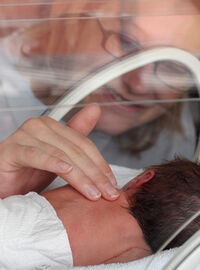Loma Linda University is fully accredited by the Western Association of Schools and Colleges (WASC). The BS, MS, and DNP Programs are accredited by the Commission on Collegiate Nursing Education (CCNE). The Nurse Anesthesia Concentration is accredited by the Council on Accreditation of Nurse Anesthesia Educational Programs.
Advanced practice nurse graduates, Nurse Practitioner (NP) and Clinical Nurse Specialist (CNS), are certified by the State of California Board of Registered Nursing and eligible to apply for certification by the American Nurses Credentialing Corporation, American Academy of Nurse Practitioners, and Pediatric Nursing Certification Board, as appropriate for the area of professional practice. The California State Board has approved all programs offered at the Loma Linda University School of Nursing. Many states may offer a compact license to individuals already licensed in California. If this opportunity is of interest to you, please contact your program director. Students who decide to pursue a license in another state should check with the applicable licensing authority in that state.
Our programs address and meet outcome expectations as articulated by the American Association of Colleges of Nursing Master’s (AACN), and DNP Essentials.



